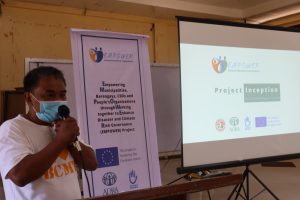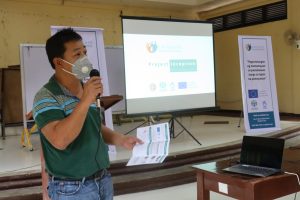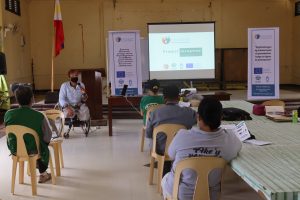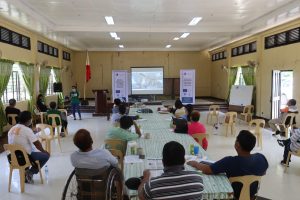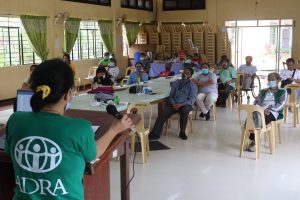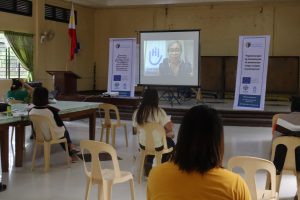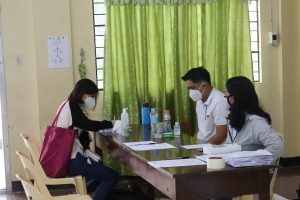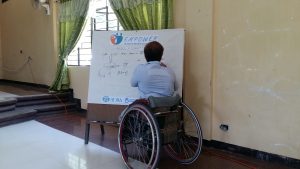Members of different civil society organizations, community based organizations and local government units of Itogon are gathered today for the launching the EMPOWER Project—Empowering Municipalities, Barangays, CSOs and Peoples Organizations through working together to enhance Disaster and Climate Risk Governance.
The EMPOWER Project was developed following an emergency response to Typhoon Ompong in 2018. The typhoon hit Northern Luzon and killed an estimated 100 people in the Cordillera Administrative Region, mainly due to a landslide incident in Itogon. The mountainous terrain makes it a region prone to landslides, particularly following heavy rain.
“This project is timely. I welcome and support this project. When Typhoon Ompong hit our municipality and killed 94 people, I realized the importance of citizens’ participation in risk governance. I urged my people through their community based organizations to take part in the decision-making processes. There are avenues like the local councils that they can engage with and make their voices heard,” Mayor Victorio Palangdan declared.
Mr. Abe Tomas, the CAR Regional President of Organization of People with Disability said, “It’s high time that people with disability actively participate in disaster and climate risk governance… we are capable; we should participate, contribute and take control over our lives and safety”.
The EMPOWER Project has two key outcomes;
Levy Gutierrez, the EMPOWER Project Manager, said “We are expecting that at the end of this Project, our CSOs and CBOs including organizations of persons with disability, older persons, women, farmer organizations, children / youth groups and vulnerable groups are empowered through this project. We will see them co-leading the disaster and climate risks initiatives in their community and different levels of governance, whether it is in the barangay or municipal DRR councils. The project will contribute to the achievement of the Sustainable Development Goals (SGD) No. 11 to make cities and human settlements inclusive, safe, resilient and sustainable, and SGD no. 13 to take urgent action to combat climate change and its impacts” .
EMPOWER is a joint project of the Adventist Development and Relief Agency and Humanity & Inclusion through funding support from the European Union. The EU has a strategic engagement with CSOs in partner countries like the Philippines with a particular focus on local organizations. The three priorities are;
1. Enhancing efforts to promote a conducive environment for CSOs in partner countries
2. Promoting meaningful and structures participation in programming and policy processes to build stronger governance and accountability at all levels
3. Increasing local CSOs’ capacity to perform their roles as independent development actors more effectively.
ADRA is the global humanitarian arm of the Seventh-day Adventist Church delivering culturally relevant relief assistance and development programs; building local capacity for sustainable change for individuals regardless of ethnicity, political affiliation, gender or religious association. ADRA in the Philippines is part of a global network present in more than 118 countries and has been operational in the Philippines for over 35 years.
HI, formerly known as Handicap International, works alongside people with disabilities and vulnerable populations in over 60 countries responding to their essential needs, improving their living conditions, and promoting respect for their dignity and fundamental rights. HI has been present in the Philippines since 1985, implementing emergency and development actions aimed at improving protection, quality of life, and the promotion of rights of vulnerable individuals, their families, and communities throughout the country.


